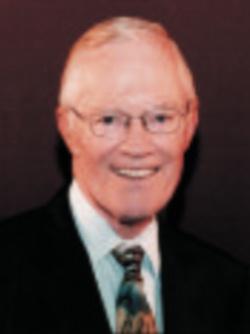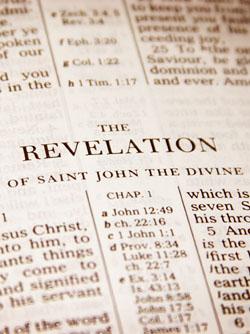The Beast Begins to Stir!
Bible prophecies have long foretold that just before Jesus Christ returns to the earth, the world will witness the revival of a European power with roots going back to the ancient Roman Empire (Daniel 2:28, 40–45).
Bible prophecies have long foretold that just before Jesus Christ returns to the earth, the world will witness the revival of a European power with roots going back to the ancient Roman Empire (Daniel 2:28, 40–45). Scripture calls this revived power a "beast" that will be stamped with a Roman label, and it will consist of ten kings [or national leaders] who will surrender their sovereignty to a strong and crafty individual (Daniel 11:3–39; Revelation 17:12–13). The Bible also indicates that this end-time revival of the Roman Empire will combine the power of a dominant church with the political machinery of the state—the "woman" (symbol of a religious leader) will ride the beast (symbol of the state—see Daniel 7:8, 20–21; Revelation 17:1–6). These long-pondered prophecies are coming alive today!
Reviving the Past
Bernd Neumann, Germany's federal Commissioner for Culture and the Media, spoke last August at the opening of a Berlin exhibit on "The Holy Roman Empire of the German Nation." The exhibit, which attracted considerable public interest at the state-controlled Historical Museum in Berlin, looked at the past of Old Europe to find structures and developmental processes that are of great significance for the federal construction of Europe. The Holy Roman Empire of the German nation held sway over central European nations for nearly a thousand years—from 962 to 1806ad. In his remarks, Neumann stressed to museum patrons the vital role a revived Holy Roman Empire could play as a model for the future of Europe. According to Neumann, the German Reich of the Middle Ages can from today's perspective serve "as a valid model for the functioning order of a superstate" (press release, German Federal Information Office, August 27, 2006).
Neumann is not the first voice to urge the revival of this Imperial idea. Otto von Hapsburg, a descendent of the last emperor to sit on the Austro-Hungarian throne, has also mentioned that there could yet be a role for the Imperial crown of the Holy Roman Empire in forging a meaningful union among the diverse countries of Europe. Similarly, the Pan-Europa Union has also emphasized that "the eternal function of the Reich must be renewed in the Europe of tomorrow in the interest of the West" (Monthly Bulletin of the Pan-Europa Union, January 1977).
Appeal to Religion
During the days of the Holy Roman Empire, power was shared between the German emperors and the popes in Rome. The popes exercised power in the spiritual realm, while the emperors exercised their power in the political realm. Roman Catholic popes crowned the emperors, and gave spiritual validation to the office of the monarch. This, too, appears to be in the offing for the future of Europe. German Chancellor Angela Merkel recently extended an invitation to Pope Benedict XVI, formerly Cardinal Joseph Ratzinger of Germany, to speak in Berlin in 2007, on the occasion of the 50th anniversary of the Treaty of Rome, which established the European Economic Community, the forerunner of today's European Union. Reports suggest that the pope plans to speak on the "spiritual foundations" of Europe—which in Benedict's framework indicates the role the Roman Catholic Church has played—and could play again—in uniting the "Christian" nations of Europe during the Middle Ages. Several popes before Benedict also stressed the need for Europe to discover its spiritual roots. Other leading clerical and political figures have also stated that it will take "something more" than economic treaties and trade regulations to tie the nations of Europe together.
Future Concerns
The election of Joseph Ratzinger, the first German pope in a thousand years, puts the Roman papacy in an unusual position. Ratzinger, born in Germany between the two World Wars, was affected deeply by his experiences in the Hitler Youth, and by service as a conscript in the German army during World War II. As a Vatican official, he spent two decades as the head of the Congregation of the Doctrine of the Faith (formerly known as the "Inquisition"), where he earned the nickname "God's Rottweiler" for his dogged persistence in upholding conservative Catholic positions.
Benedict's visit to Berlin in 2007 will coincide with Germany holding the six-month rotating presidency of the EU, and also with that nation's presiding over the G-8 organization of leading industrialized nations. Benedict's presence at the fiftieth anniversary of the Treaty of Rome will no doubt lend legitimacy to the idea of cooperation between Church and state in the future evolution of a united Europe, even though some Europeans—notably the French, who are openly committed to secularism and the separation of religion and politics—will not welcome such a development.
Neumann's remarks about a German Reich, echoing statements by other German leaders, have sobering implications for nations in Eastern Europe. Neumann reminded his audience that the Holy Roman Empire of the German Nation was "part of the past of many European states" including Poland and the Czech Republic, and that "Germany and Central Europe are historically and culturally indissolubly linked together" (press release, German Federal Information Office, August 27, 2006). Such assertion of German hegemony over other parts of Europe generates fear among the newly independent states to Germany's south and east. German student organizations also continue to promote German territorial claims to parts of Austria, Poland, Denmark, Belgium, Switzerland, Italy and Russia where German-speakers live. In fact, one group has stated, "The German Reich in its borders of 31st December 1937 continues to be recognized in German law" and, further, "By Germany we understand the German inhabited area in Central Europe from which Germans have been illegally expelled… Germany exists independently of State borders." (2005 Handbook, Deutsche Burschenschaft). This is not mere nationalism; these same ideas were expounded by Germany's Nazi party when it rationalized its desire to annex territory that belonged to other countries, and in the process ignited the fires of World War II. Bible prophecies indicate that this final revival of the Holy Roman Empire in Europe will have global repercussions (for more on this vital topic, write for your free copy of our informative booklet, The United States and Great Britain in Prophecy, or request it online at our Web site https://www.tomorrowsworld.org).
While many secular critics scoff at the idea that the Bible is the inspired word of an Almighty God who intervenes in history, we are seeing in today's news headlines the fulfillment of specific prophecies that were written in your Bible thousands of years ago. The prophet Daniel predicted the revival of the Roman Empire in its final phase just before the return of Jesus Christ to this earth (Daniel 2:41–45). He also foresaw a prominent religious leader playing a dominant role in successive revivals of the Roman system down through the ages (Daniel 7:8–25). The Apostle John saw a woman [a church] riding an end-time beast that would consist of ten leaders who would work together for a short time at the end of this age (Revelation 17). These prophecies are coming alive today, and will surprise the world in the days ahead—as the "beast" is beginning to stir! To learn more about the identity of Germany in prophecy, write for our free reprint article, A Fourth Reich? or read it online at https://www.tomorrowsworld.org.






